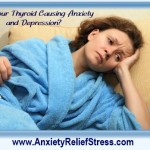It can be a very frightening experience to suddenly and without warning have extreme feelings of panic and overwhelming fear. This is the onset of panic attacks. They are unpredictable when they first come on. For some people, one attack is all they ever know of the experience. For others, recurring attacks can happen. For these, there is usually a trigger that induces panic attacks or they may find themselves in the middle of events that bring them on. Luckily, they can be virtually harmless for most. Unfortunately for others, they can be very debilitating emotionally and physically. They can even lead to a panic disorder.
Some estimate that up to 10% of all people can be affected by panic attacks. It can usually first appear in early adulthood. Some are never diagnosed or they are incorrectly diagnosed with something else. Women are up to twice as likely to have a panic attack over men. There is also evidence to suggest panic attacks may be a genetic disorder.
How Do I Know If I Am Having A Panic Attack?
There are some common symptoms indicative of panic attacks. They are heart palpitations or increased heart beat, chest pain, shortness of breath, hyperventilating, upset stomach and shaking. Other subsequent symptoms are tense muscles, dizziness, sweating, cold or hot flashes, fear or impending death, and feeling out of sorts with your surroundings.
These fearful symptoms are strikingly like those of a heart attack. Panic attacks can be benign while a heart attack can be deadly. This is why getting medical attention for any of these symptoms is important because you will not be able to distinguish which one you are suffering from the first time it happens. Sometimes panic attacks can happen with known reasons. Some reasons that can bring one on would be the news of a death in the family, a bad relationship, a traumatic event, divorce, car accident, or a public humiliation to name a few. If one of these becomes your trigger for panic attacks, another could happen the next time you are exposed to a like event. Stress is also a very common trigger for panic attacks. There are also genetic factors that can bring them on too.
What Should I Do During a Panic Attack?
Panic attacks can vary in the length of time you experience one. However, they typically last five to ten minutes with few ever lasting for a half hour or longer. The above mentioned symptoms can be frightening during this time. Having an increased heart rate during this time means it is vital you stay calm and try to breath easier. You must try to inhale slowly for about three seconds and then hold your breath for three seconds. Then, slowly exhale for the next three seconds.
This can help you achieve a sense of calm. Slowly walking around is helpful. If you are hyperventilating, breathe into a paper bag. This reintroduces more carbon dioxide into your blood, slowing down your breathing.
It is important to try and divert your attention away from what is causing your panic attacks. You need to focus on something pleasant. The panic attacks should subside easier if you can keep mentally busy with puzzles or word games.



















Speak Your Mind